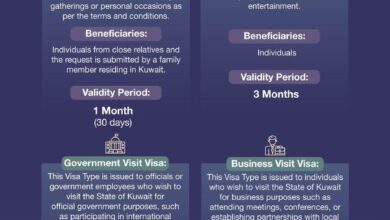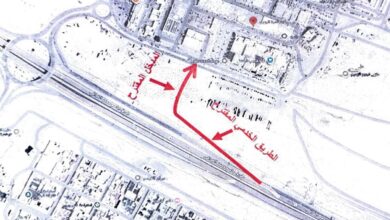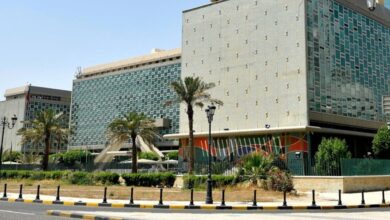
The decision announced by the First Deputy Prime Minister, Minister of Defense, Minister of Interior, and Chairman of the Supreme Committee for the Investigation of Kuwaiti Nationality, H.E. Sheikh Fahad Al-Yousef, regarding the retention of jobs for retired, divorced, and widowed wives of Kuwaitis residing in Kuwait, based on Article 8 of the Nationality Law, and their continued receipt of salaries, had a significant positive impact, affirming once again that Kuwait is a country of humanity. However, the banks had their own interpretation of the decision, and the results were not as expected by those affected.
Once the decision was announced, the question arose legally and procedurally: Does the group that decides to continue to keep their jobs have the right to receive their salaries and resume withdrawing salaries according to the prevailing tradition before withdrawing their nationalities? Or will it constitute an additional layer to their frozen balances, until their status is adjusted?
The Ban Continues
In this regard, responsible banking sources told Al-Rai that Banks are still maintaining the procedure of blocking the accounts included in the decision without change, in adherence to the Cabinet’s directive to halt transactions for all individuals whose nationalities were withdrawn, whether in government or banking sectors, including the group allowed to retain their jobs and receive the same salaries. They noted that this decision does not exempt them from having their funds frozen or allow them to move their accounts without government permission, including cashing their salaries.
To simplify and avoid any complications, the sources explained that the banks will not allow the owners of the returned salaries to cash them until they adjust their residency status, while they will allow any money to flow into their accounts, including salaries, stressing that the ban on the accounts of any customer whose nationality has been withdrawn will be lifted or part of it will be released in two cases: the first is if the account holder adjusts his nationality, with the submission of a certificate of good conduct approved by the Nationality Department, or by the issuance of a new government decision exempting him from the total freeze imposed on their balances, provided that the directive is based on a government statement specifying the names of the beneficiaries and their civil numbers.
Cloud Faces
The sources indicated that banks will be allowed to resume withdrawals from the balances of those whose nationalities have been withdrawn in two specific cases.
The first relates to obligations set for government agencies, which will be directly withdrawn from the seized balances, including deducting installments of the General Organization for Social Insurance, if applicable, as well as any housing or educational payments, and so forth.
This scope will also expand to include financial penalties, potentially encompassing traffic violations, among other government claims. These debts are given priority over any other debt due to their government privilege.
The second aspect involves deducting loan installments due from this segment directly from the balances, provided there are sufficient funds in the customer’s account with the creditor bank. However, if the balance is held with a non-creditor bank, withdrawals to the accounts of other creditor banks are not permitted.
Settlement of Obligations
The procedural meaning of the above is that a portion of the salaries of retired, divorced, and widowed wives of Kuwaitis residing in Kuwait, as per Article 8 of the Nationality Law, will be directed to pay their obligations to the state and to lending banks, if applicable. Any surplus will be stored in their accounts and frozen until further notice.
Fate of Deposits
Perhaps the key question in this regard is: How will banks handle the balances of those whose nationalities have been withdrawn, specifically deposits—whether expired or existing? More precisely, will these funds be re-linked to new terms and charged interest based on the prevailing market rate until their owners adjust their residency status, or will they remain fixed assets devoid of movement and profitability?
In addition, the sources anticipated that these balances would remain unchanged without term renewals until their owners amend their statuses. This means they will not accrue any interest in the future, even if held for years. The rationale is that if individuals whose nationalities have been withdrawn are prohibited from accessing their balances until their situations are resolved, banks are similarly restricted from investing these deposits. As a result, these funds become idle liquidity, preventing any return for either party.
Double the Loans
In a related context, the sources predicted that the value of consumer and personal loans owed to banks by customers whose nationalities were revoked could double, as their numbers have recently surpassed 12,100 individuals.
The total debt is estimated to have reached approximately 35 million dinars so far, distributed among banks according to their market shares of individual loan portfolios. The sources clarified that these estimates exclude financing directed to companies whose nationalities were revoked. They also highlighted that the most significant banking challenge in this segment arises from loans issued to individuals whose nationalities were revoked due to forgery, as this group has expanded considerably, with many obtaining consumer and installment loans up to the maximum limit set by the Central Bank of Kuwait at 95,000 dinars.
The Fourth Quarter
The sources told Al-Rai that banks are likely to create precautionary provisions for customers whose nationalities have been withdrawn in their fourth-quarter 2024 financial statements. This will mark the first time in Kuwaiti banking history that such provisions are recorded in the sector’s books.
Specific precautionary provisions are expected to be established for the portfolio of doubtful loans within this category at a 100% rate, particularly for customers whose salaries have been suspended, lack sufficient balances to cover their obligations, and are classified as defaulting customers subject to legal action.
Additionally, banks are likely to build extra general provisions to prepare for any future increase in the number of individuals whose nationalities and associated loan values are withdrawn.
Stop renewing phone and internet lines upon expiration of the contract and pay the bill in cash
Although individuals whose nationalities have been withdrawn continue to use active telephone and internet lines registered in their names under monthly billing systems, the sources noted that telecommunications companies will not renew expired contracts for this group.
Additionally, outstanding bills under current contracts must be paid in cash, as direct deduction orders from bank accounts have been suspended for some customers.
This procedure is supported by the fact that telecommunications companies require customers to present a valid residency permit to renew their contracts; a condition that cannot be met until the residency status of individuals whose nationalities have been revoked is resolved.















